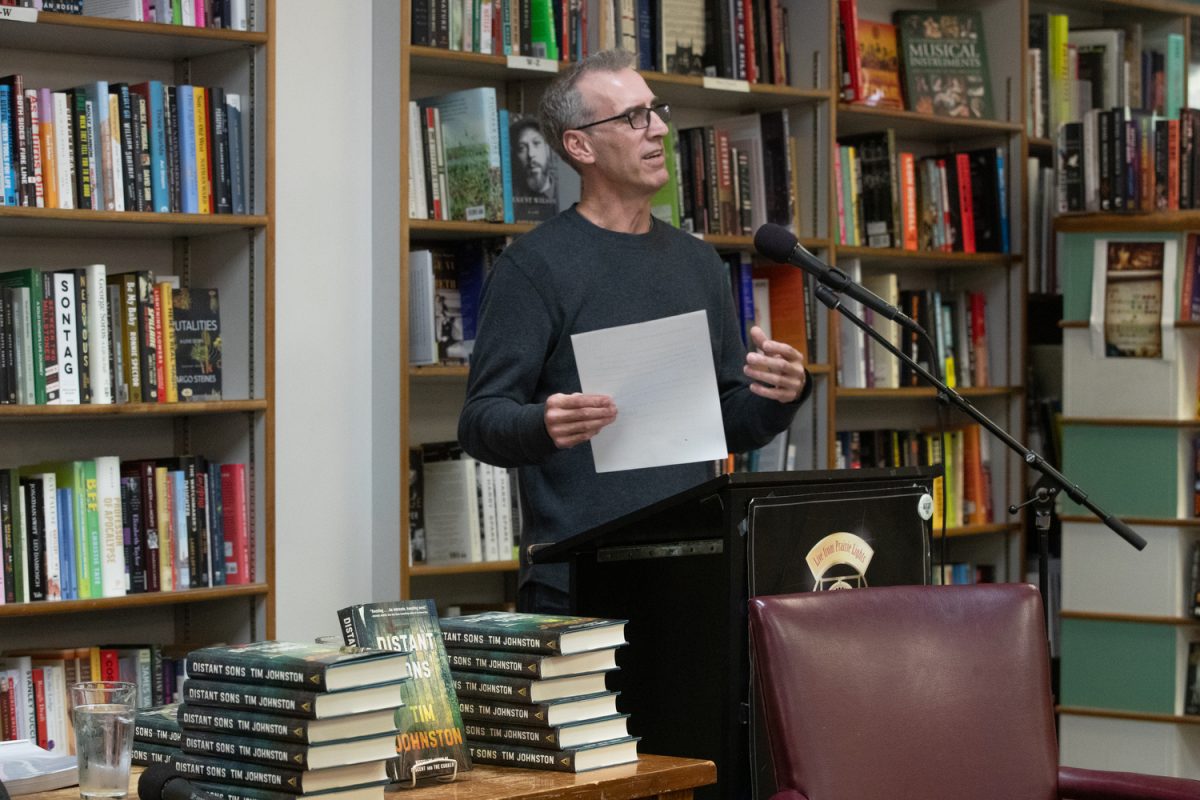Tim Johnston is a New York Times bestselling author who graduated from the University of Iowa and went to the University of Massachusetts-Amherst for graduate school. He has written “The Current,” “Descent,” “Never So Green,” and a collection of stories called “Irish Girl.” Johnston won the Iowa Author Award in 2015 and is currently living in Iowa City.
The Daily Iowan: What drew you toward the thriller genre?
Tim Johnston: What drew me to the literary thriller genre was just writing stories — it wasn’t really to write a thriller. I was trained and interested in writing what were called literary stories, which were stories that would show up in literary journals like The Iowa Review. My way of thinking about it was that I wanted to raise the stakes and make them more exciting, rather than a quiet novel about family or relationships, that kind of thing.
I really didn’t set out to write thrillers, I was sort of adding that element to the literary writing I was trying to do. And I think that’s still what I’m doing to this day with a new book.
I will say this: I’ve read Stephen King as a kid. I read thrillers and horror. I loved that stuff and so it wasn’t like I grew up reading Chekhov. I didn’t read that stuff until college told me to read it. Until then, I was reading the most exciting — sort of weird — violent stuff I could find, so I imagine that carried over into my writing eventually.
Who or what was the inspiration for “Distant Sons”?
I had this idea early on to take a character from my previous two books and have them meet in a new book and have an entirely unrelated story to those previous two books. It wouldn’t go away, and eventually, I just started to write it to see what would happen.
There are always elements of me and my life that seep into the characters, and occasionally the character will have some resemblance to someone I’ve known.
I’m not really modeling them on anyone in particular but elements do sneak in. If it sounds too biographical, I veer directly away from that. I don’t want to write anything that resembles me, myself, or my life. The more fictional it feels and seems, the more fun it is for me to write and the more free I feel.
What is the best piece of advice you can give to people who want to write their own stories?
My go-to advice is to first read — to read what you love, to read things you’ve never heard of, to read widely, and to learn to read carefully. When I was teaching creative writing, I was really more concerned with teaching how to read like a writer, to notice how stories are put together, how grammar is used, and how punctuation is used. If you can learn to read like a writer, then every book is going to teach you something. It’s going to slow the process down. It might even for a little while take the pleasure out of reading because you start paying attention to how that world was constructed physically on the page. But ultimately, I think that could make an even more rewarding and powerful experience.
Writing takes time. If you love to write, then just write.
What made you choose to read at Prairie Lights instead of other venues?
I grew up here. I am a big believer in supporting independent bookstores. Prairie Lights is one of the great ones, they’ve been around since 1978, and I’ve always gone there and bought books. This is probably the fifth or sixth time I’ve done a reading there. It’s natural for me to go there again. It’s a great environment, there are great people, and I have a history with them. As long as they would take me, and they seemed willing to do so.
What do you want readers to take away from your stories?
It’s not like I have a message. My philosophy is, I need to have a compelling story and I’m not going to worry about what life instruction or lessons or whatever a reader might get from them [the stories]. What I’m interested in is writing a story that moves a reader, that they become involved in emotionally. That’s all that really matters. When people react to a book on an emotional level, that’s satisfying enough for me.
The book is meant to be entertainment. It’s meant to give somebody not necessarily an escape from life, but maybe a different kind of world to be in for a while and when they’re done, wish it hadn’t ended. That’s what I really want. When I [was] a reader, that was the coolest thing in the world, like “I want to just stay in this world with these characters,” you know. So that’s what I’m hoping for.



